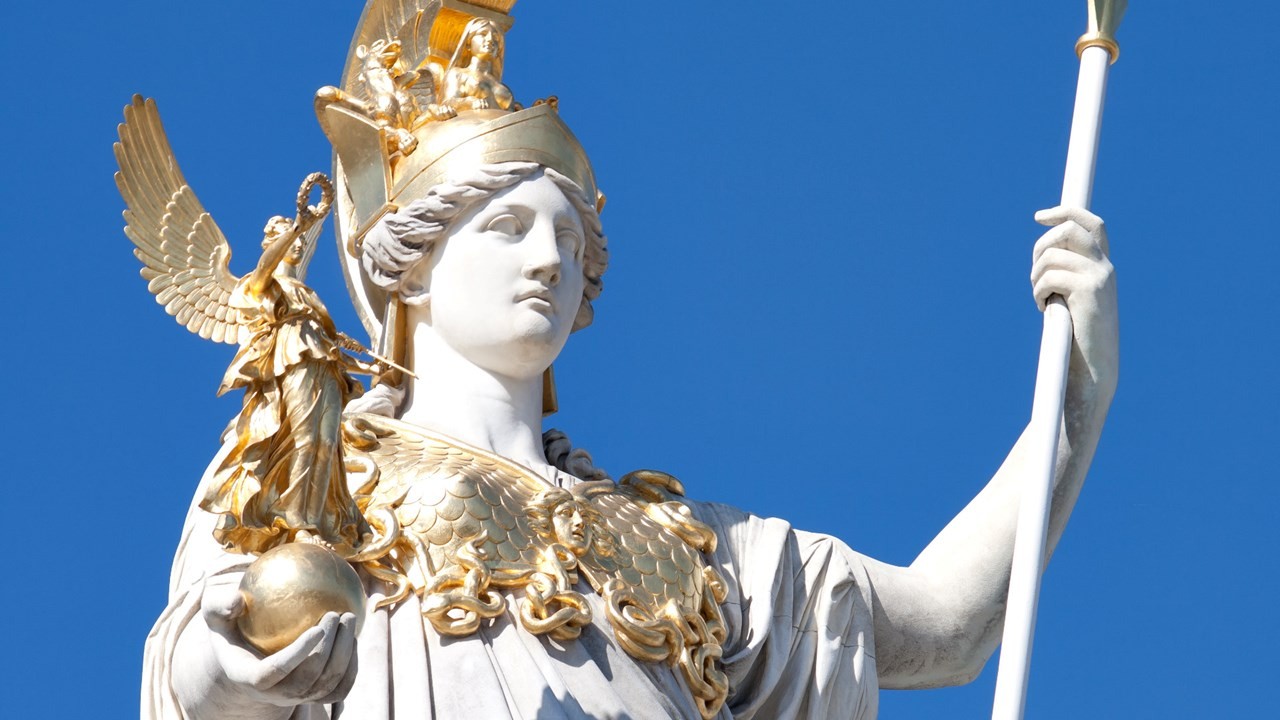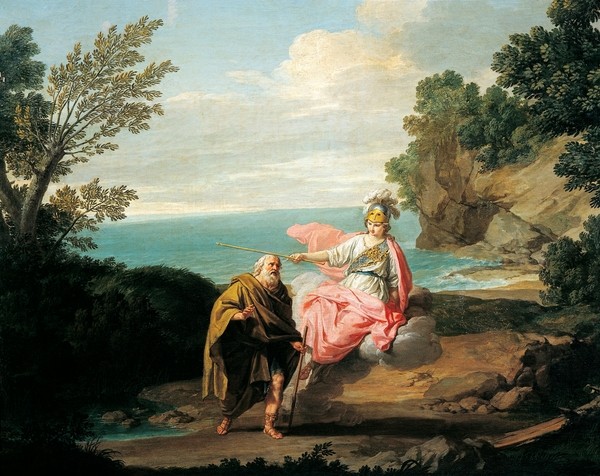by Sean Kelly, Managing Editor, Classical Wisdom
She’s one of the most famous and prominent of the Greek deities. Her symbol – the owl – still stands proudly, millennia later, as an emblem of wisdom.
Yet what do the ancient texts actually say about her? Who is she, and what does she do?
What do we know about the Goddess of Wisdom?
Athena in Homer
The Iliad and the Odyssey were both of central importance to ancient Greek society. Even today, it is many people’s first exposure to the world of the Classics. Athena’s role in both, while comparatively small in terms of ‘screentime’, is key to the action of the story.
Of the two Homeric poems, Athena plays a much larger role in the Odyssey. She essentially acts as the protector of Odysseus. At various points across Odysseus’ journey, it is Athena’s help and guidance that allow the cunning hero to escape to safety. Moreover, it is Athena’s request to Zeus that allows Odysseus to leave the island of Circe.
Some have taken this to diminish the role of Odysseus himself. The interaction between the human and the divine in Greek literature, however, is more complex than that. Odysseus own qualities of cunning and guile are what win him the approval of the goddess. It is his own resourcefulness that makes him worthy of having a god intervene on his behalf. Odysseus’ own personality is defined by cleverness and using his wits. That these are traits similar to those possessed by the goddess herself is significant.
A direct parallel is drawn between Odysseus and Athena in two incidents that bookend the epic. Early on in the Odyssey, Athena appears to Odysseus’ son Telemachus in disguise. Towards the end of the epic, it is Athena that allows Odysseus to take on the form of a beggar, which allows him to re-enter Ithaca disguised.
Athena’s presence in the Iliad is notably less prominent. Nevertheless, she also acts as something of a guide to Achilles at key moments throughout. For instance, she is present at the infamous quarrel of Agamemnon and Achille over Breseis which opens the epic. She helps stay the anger of Achilles, preventing him from killing Agamemnon outright!
Athena in Greek Tragedy
Athena was, naturally enough, the patron of her namesake city, Athens. The Festival Dionysia, where Greek tragedies were staged, actually took place in Athens. So, the audience for Greek tragedies consisted primarily of Athenians. The characterisation of Athena in Greek tragedies is, unsurprisingly, consistently positive.
Perhaps Athena’s most important role in Greek Tragedy is in the Eumenides by Aeschylus. Athena appears in the third and final play of the Oresteia trilogy, where she effectively acts as a judge in the world’s first courtroom drama.
The deciding vote as to whether or not Orestes should be considered guilty of his crimes is granted to Athena. The ruling frees Orestes from punishment by the Furies, while also granting the Furies a place of honour in a new system of justice.
This ruling is seen as representing in dramatic form perhaps the greatest Athenian invention – democracy.
Athena also appears in a number of Euripides‘ plays, such as Iphigeneia Among the Taurians, The Suppliants and Ion. In each of these plays, she acts in the role of deus ex machina, a term that literally means ‘god from the machine’.
Although that term might conjure up the sort of imagery you’d see in a Marvel or Matrix movie, it’s real meaning is much more straightforward than it might sound.
The ‘machine’ is in fact the mechane, a sort of crane that formed part of the ancient Greek stage. It was a heightened platform, placed physically above the action of the rest of the scene, to signify to the audience that the actor was playing a god.
Whenever the drama has reached a point near the climax of the story, and all the play’s problems seem unsolvable, a god appeared on this stage. They then go on to very effectively resolve the conflict of the play, by telling each of the characters what they must do. It’s not always been a popular technique in tragedy – Aristotle was critical of the convention of the deus ex machina in his treatise on tragedy, the Poetics. Today, many would still agree with him. Yet it is a fitting role for Athena to fulfil. It’s consistent with how Athena is characterised throughout ancient literature, while also wrapping up the stories of the tragedies
There is, of course, an even more vast body of myths that surround Athena. Many of these belonged to the lost poems of the Epic Cycle. We still know many of these stories – for instance, that she was one of the three goddesses Paris had to choose between in the “Apple of Discord” story. Yet so much is also lost. Perhaps the real wisdom is found in the words of Socrates – “I know that I know nothing.”












No comments
Trackbacks
Our apologies, you must be logged in to post a comment.